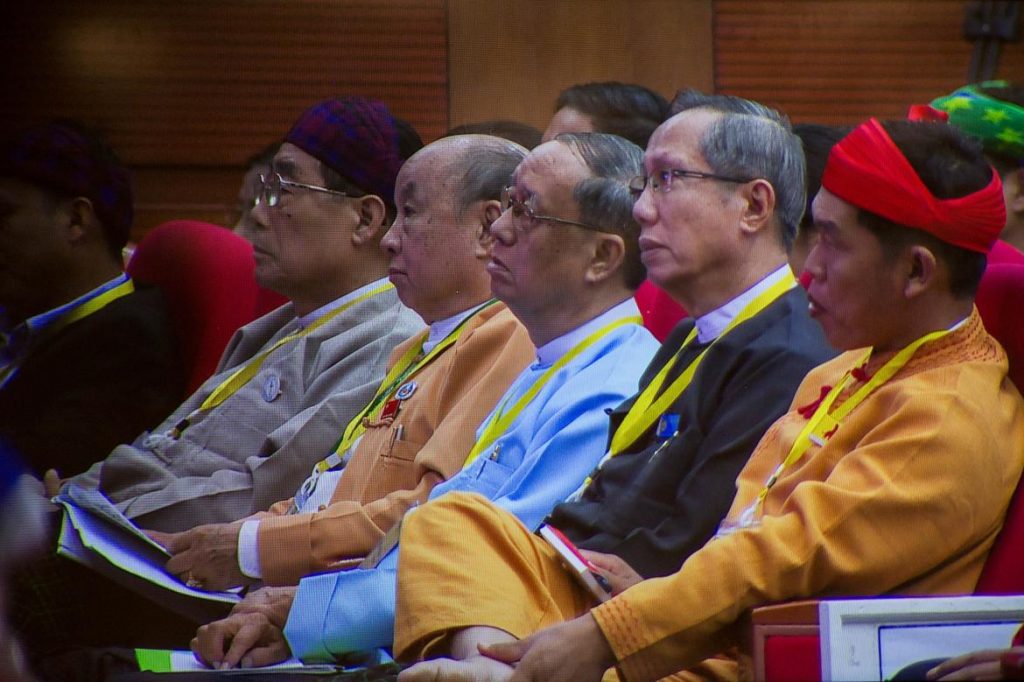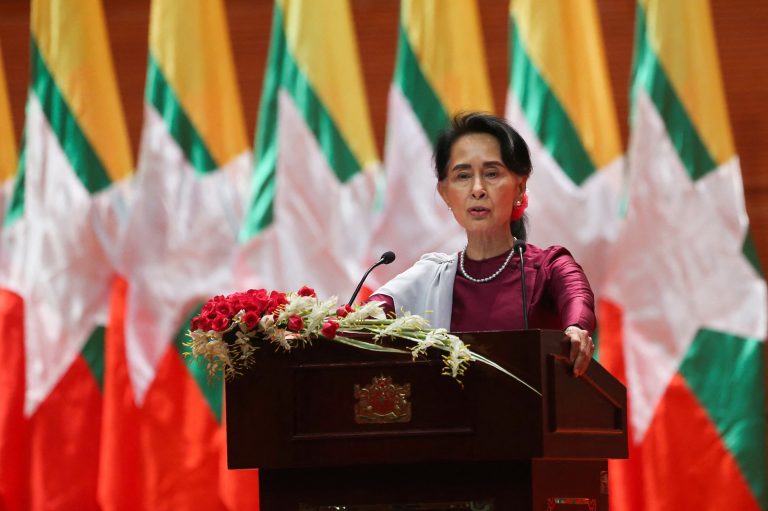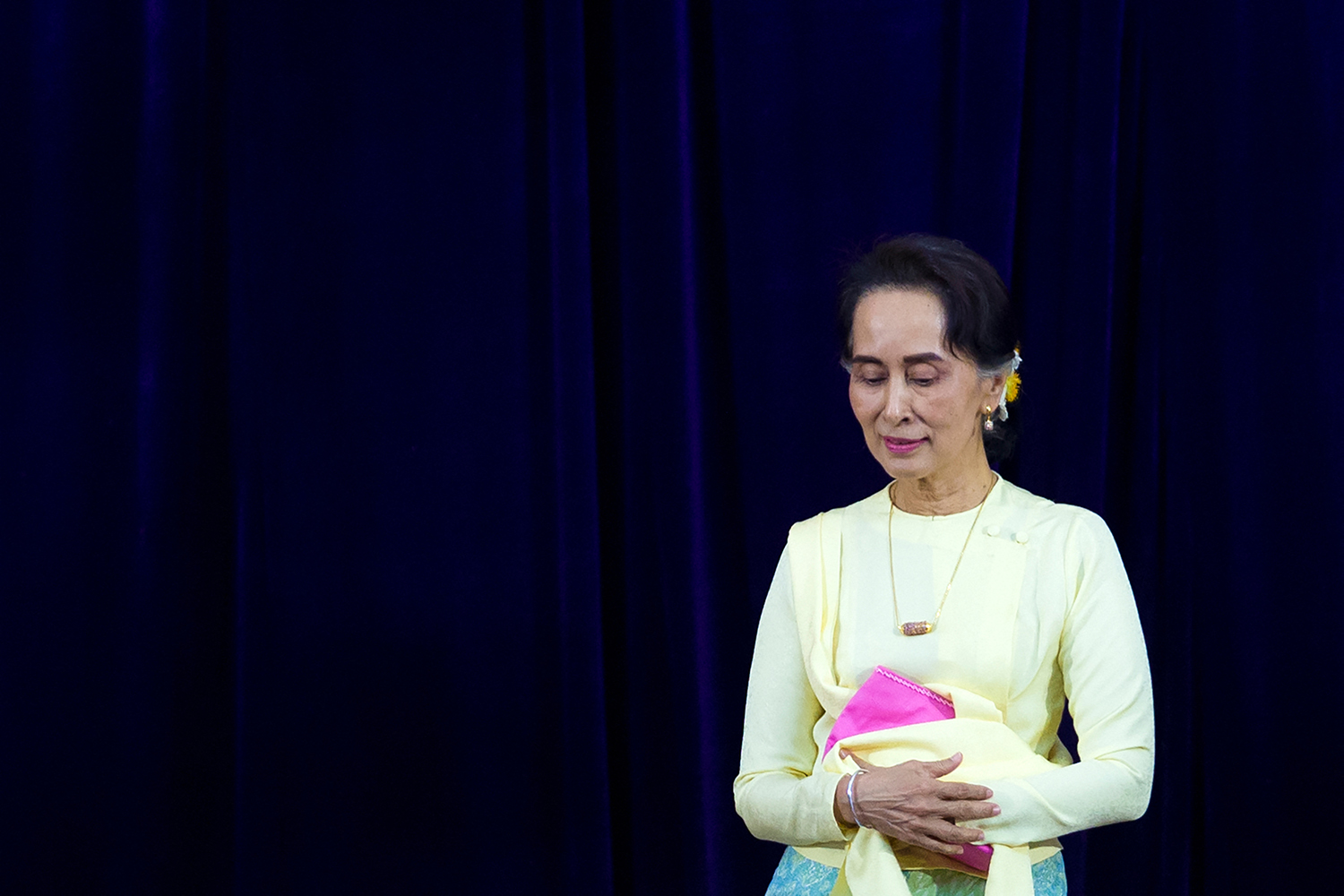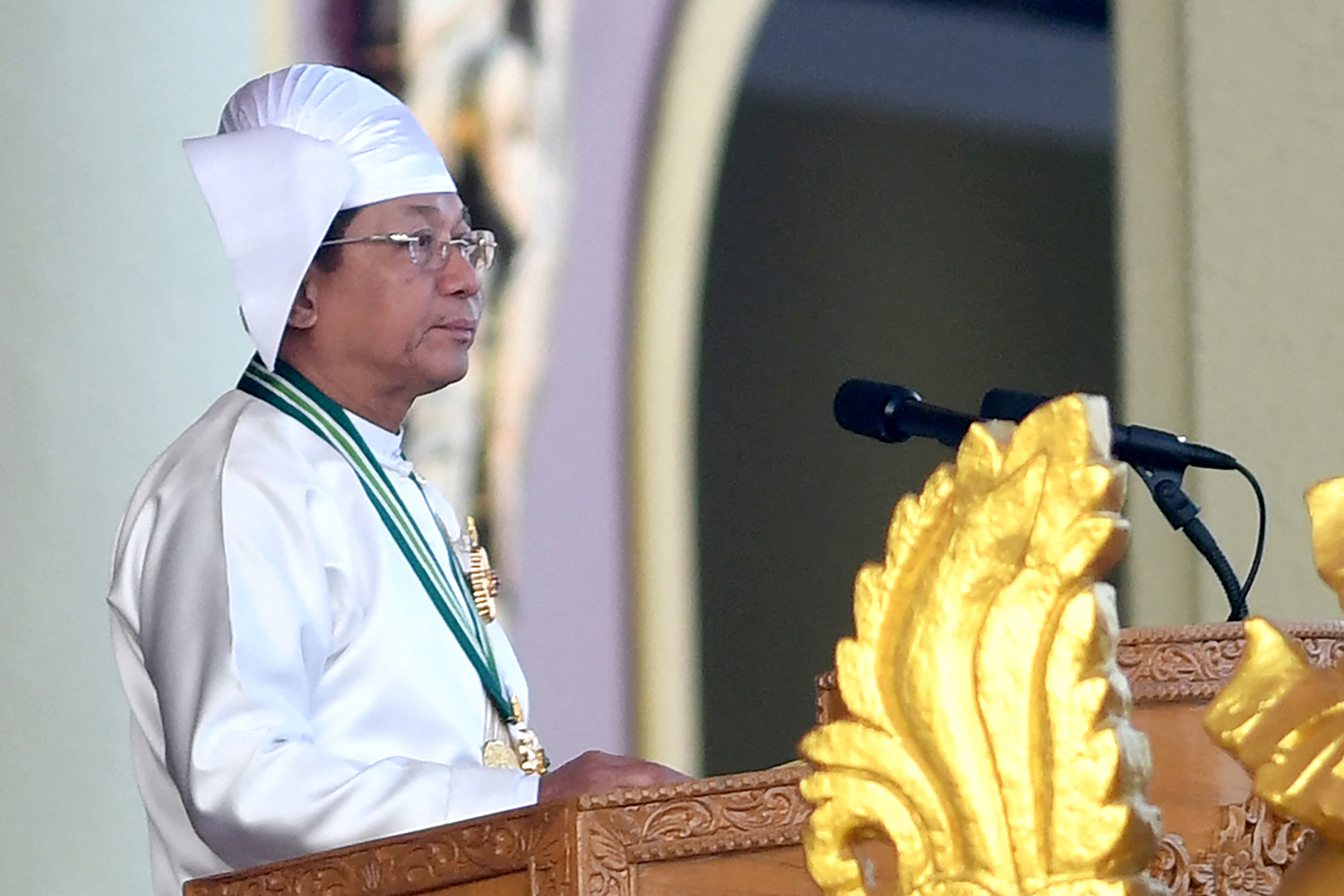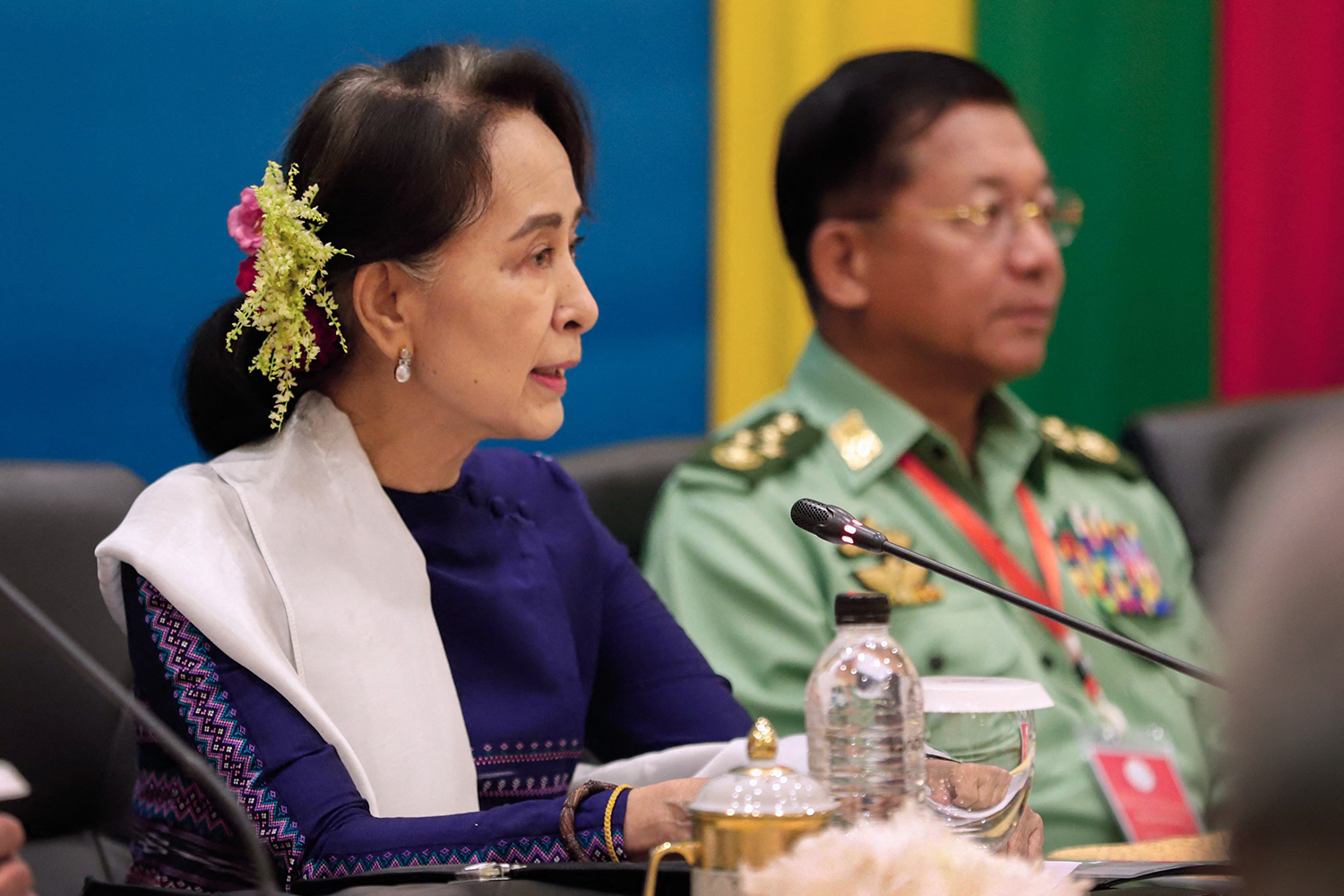The State Counsellor is pushing some of the country’s biggest ethnic armed groups to sign the Nationwide Ceasefire Agreement before the next Union Peace Conference.
By SITHU AUNG MYINT | FRONTIER
WHEN DAW Aung San Suu Kyi was an opposition politician, she was criticised by some ethnic armed groups for remaining silent about Tatmadaw offensives and human rights abuses in national minority areas.
Now the equation has changed. In her role as State Counsellor she is leading the government, as well as the process aimed at achieving internal peace. Aung San Suu Kyi had vowed in January that when her National League for Democracy government took office its first priority would be the peace process.
At the beginning of her government’s term, when it launched its efforts to bring peace, she was regarded as being impartial toward the Tatmadaw and ethnic armed groups, and focussed on achieving an inclusive peace process and bringing an end to conflict.
At a meeting of the Union Peace Dialogue Joint Committee in Nay Pyi Taw on October 28 and during her subsequent visit to Japan she gave clear indications of her attitude about the peace process.
Support more independent journalism like this. Sign up to be a Frontier member.
Do her comments suggest that armed ethnic groups that have not yet signed the Nationwide Ceasefire Agreement are likely to do so?
At the meeting of the UPDJC, which she chairs, Aung San Suu Kyi called on non-signatory groups to sign the NCA before the next 21st Century Panglong Union Peace Conference, due to be held in February.
“We can only attain peace when we have ended conflict. That means all ethnic armed groups need to sign the NCA. Only when all groups have signed the NCA will conflict end,” she said.
“Please don’t delay. Our country has been thirsting for peace for decades. How much more time do you want to take? If you want to take time, just come to the conference room to negotiate. When I speak like this, it does not mean that I do not understand the position of non-signatories. I have full understanding. But I want you to understand our position,” she said.
Asked about the peace process during her visit to Japan, she said the main difficulty was an unwillingness to end conflict. “If you want to end it, you can,” the state counsellor said, in frank comments apparently directed at non-signatory groups. “We must find the root cause of why you don’t want to end conflict, what you think you would lose if civil war ended, what would be the disadvantages for you if the fighting ends.”
Aung San Suu Kyi’s straightforward comments are unlikely to have found favour among non-signatories, especially the two biggest ethnic armed groups, the Kachin Independence Organisation and the United Wa State Party.
The KIO is the most powerful force in the United Nationalities Federal Council, a coalition of nine groups that have not signed the NCA. Fighting resumed between the KIO’s armed wing, the Kachin Independence Army, and the Tatmadaw in 2011 after the collapse of a bilateral ceasefire signed in 1994.
KIO leaders argue that they need political negotiations rather than to sign the NCA. They say the root cause of their conflict is political so if a political solution can be found through negotiation the fighting will stop.
The UWSP does not want to sign the NCA because it does not want to be involved in a national-level peace process. It wants only bilateral negotiations with the government. As far as the Wa are concerned, they already have a ceasefire – the one they signed in 1989.
Aung San Suu Kyi has taken the leading role in pushing forward the peace process launched by the previous government of President U Thein Sein. The process requires all ethnic armed groups to sign the NCA and pave the way for political negotiations, the eventual outcome of which will be submitted to the Pyidaungsu Hluttaw for approval.
The next step is for amendments to the 2008 Constitution that will create a federal union political system, with more power devolved to states and regions. This is the peace process outlined by the NCA that Aung San Suu Kyi is urging non-signatory groups to sign without delay.
The non-signatory ethnic armed groups do not like coming under pressure to sign the NCA.
However, the peace process under Aung San Suu Kyi is moving ahead with the support of the Tatmadaw and the eight ethnic armed groups that signed the NCA in October last year. She also has the support of China, the United States, Japan and other members of the international community. Under these circumstances, the UNFC, including the KIO, can be expected to sign the NCA soon.


